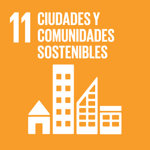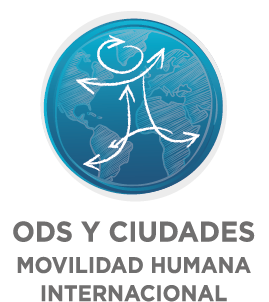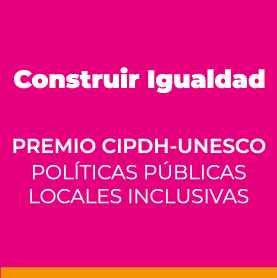
- Region
- Latin America and the Caribbean
- Range of Demographic Size
- 100,000 to 499,999 inhabitants (large intermediate)

11.1 By 2030, ensure access for all to adequate, safe and affordable housing and basic services and upgrade slums.
11.2 By 2030, provide access to safe, affordable, accessible and sustainable transport systems for all, improving road safety, notably by expanding public transport, with special attention to the needs of those in vulnerable situations, women, children, persons with disabilities and older persons.
11.3 By 2030, enhance inclusive and sustainable urbanization and capacity for participatory, integrated and sustainable human settlement planning and management in all countries.
11.4 Strengthen efforts to protect and safeguard the world’s cultural and natural heritage.
11.5 By 2030, significantly reduce the number of deaths and the number of people affected and substantially decrease the direct economic losses relative to global gross domestic product caused by disasters, including water-related disasters, with a focus on protecting the poor and people in vulnerable situations.
11.6 By 2030, reduce the adverse per capita environmental impact of cities, including by paying special attention to air quality and municipal and other waste management.
11.7 By 2030, provide universal access to safe, inclusive and accessible, green and public spaces, in particular for women and children, older persons and persons with disabilities.
11.a Support positive economic, social and environmental links between urban, peri-urban and rural areas by strengthening national and regional development planning.
11.b By 2020, substantially increase the number of cities and human settlements adopting and implementing integrated policies and plans towards inclusion, resource efficiency, mitigation and adaptation to climate change, resilience to disasters, and develop and implement, in line with the Sendai Framework for Disaster Risk Reduction 2015-2030, holistic disaster risk management at all levels.
11.c Support least developed countries, including through financial and technical assistance, in building sustainable and resilient buildings utilizing local materials.
Universal Declaration of Human Rights (UDHR).
International Covenant on Civil and Political Rights (ICCPR).
International Covenant on Economic, Social and Cultural Rights (ICESCR).
Summary
The Honorable Municipality of Solidaridad, through the Office of Sustainable Environment and Climate Change, is implementing efforts focused on the sorting of recyclable solid waste, such as “Reciclatón” and “Kilo Verde.” Given their positive reception and the active participation of the citizenry as a result of different workshops on environmental education, these programs have remained in force for thirteen years.
“Reciclatón” is a program of recyclable urban solid waste collection, carried out every first Friday of the month on thirteen collection centers distributed across Playa del Carmen. For its part, “Kilo Verde” seeks to exchange recyclable urban solid waste for native plants simultaneously in two subdivisions every third Friday of the month, from 3 p.m. to 6 p.m.
Implementation Date:
Start: 07 / 7 / 2008
End: End: Currently in force
- Email: contacto@gobiernodesolidaridad.gob.mx
- Web: https://gobiernodesolidaridad.gob.mx/
- Telephone: +52 (984) 877 3050 ext. 10125–10129
- Social Network:
Instrumentos

11.1 By 2030, ensure access for all to adequate, safe and affordable housing and basic services and upgrade slums.
11.2 By 2030, provide access to safe, affordable, accessible and sustainable transport systems for all, improving road safety, notably by expanding public transport, with special attention to the needs of those in vulnerable situations, women, children, persons with disabilities and older persons.
11.3 By 2030, enhance inclusive and sustainable urbanization and capacity for participatory, integrated and sustainable human settlement planning and management in all countries.
11.4 Strengthen efforts to protect and safeguard the world’s cultural and natural heritage.
11.5 By 2030, significantly reduce the number of deaths and the number of people affected and substantially decrease the direct economic losses relative to global gross domestic product caused by disasters, including water-related disasters, with a focus on protecting the poor and people in vulnerable situations.
11.6 By 2030, reduce the adverse per capita environmental impact of cities, including by paying special attention to air quality and municipal and other waste management.
11.7 By 2030, provide universal access to safe, inclusive and accessible, green and public spaces, in particular for women and children, older persons and persons with disabilities.
11.a Support positive economic, social and environmental links between urban, peri-urban and rural areas by strengthening national and regional development planning.
11.b By 2020, substantially increase the number of cities and human settlements adopting and implementing integrated policies and plans towards inclusion, resource efficiency, mitigation and adaptation to climate change, resilience to disasters, and develop and implement, in line with the Sendai Framework for Disaster Risk Reduction 2015-2030, holistic disaster risk management at all levels.
11.c Support least developed countries, including through financial and technical assistance, in building sustainable and resilient buildings utilizing local materials.
Universal Declaration of Human Rights (UDHR).
International Covenant on Civil and Political Rights (ICCPR).
International Covenant on Economic, Social and Cultural Rights (ICESCR).
Location
- Region
- Latin America and the Caribbean
- Range of Demographic Size
- 100,000 to 499,999 inhabitants (large intermediate)
Contact details
- Email: contacto@gobiernodesolidaridad.gob.mx
- Web: https://gobiernodesolidaridad.gob.mx/
- Telephone: +52 (984) 877 3050 ext. 10125–10129
- Social network:



